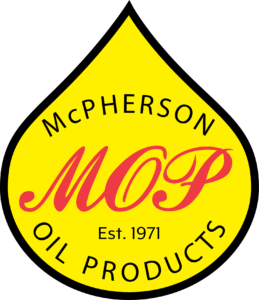Lubricant Storage & Handling Basics
22 Jun 2020, Posted by in Oil Tips As most maintenance professionals know, good storage and handling practices can help deliver productivity, safety, and sustainability benefits for any industrial operation. They will help ensure that lubricants are in peak condition to properly protect equipment and keep it running with minimal unscheduled downtime while also helping to reduce potential lubricant waste.
As most maintenance professionals know, good storage and handling practices can help deliver productivity, safety, and sustainability benefits for any industrial operation. They will help ensure that lubricants are in peak condition to properly protect equipment and keep it running with minimal unscheduled downtime while also helping to reduce potential lubricant waste.
With that in mind, here are five fast facts to help operators get the most out of their storage and handling program:
#1. Lubricants are susceptible to contamination and degradation even when not in service.
Lubricant condition does not only change when in service, but it can also change when in storage. Any exposure to dust, dirt, water, or other particles during the storage process could result in lubricant contamination, making that lubricant less effective in service. Similarly, prolonged exposure to adverse conditions such as extreme temperatures can alter key lubricant characteristics. That’s why storage in properly sealed containers and dedicated storage areas with the right ambient conditions is critically important.
#2. Storing lubricants indoors is best.
Whenever possible, lubricants should be stored indoors, ideally in an area that is air-conditioned and that can maintain constant temperatures. The floor should be level and oil resistant and the storage area should be well ventilated. The area should also have shelving that adequately protects all containers. For example, the viscosity index improver polymer additives in crankcase oils can degrade in sunlight, so these oils should not be stored in clear containers exposed to sunlight.
#3. Handling lubricants require proper care, too.
Storage isn’t the only time the lubricant is susceptible to contamination – proper lubricant handling is equally important. Maintenance personnel should implement good handling practices to ensure cleanliness, including the use of regularly maintained lubrication trolleys and dispensers. The maintenance team should also properly clean the lubrication points prior to application to minimize the risk of contamination.
#4. Your lubrication partner can help design a best-in-class program
Many lubricant suppliers have experienced field engineers that can conduct lubricant storage and handling studies across an operation, providing comprehensive review and analysis. A walk-through review of the facility is conducted before reviewing current practices, location of inventory, logistics, manpower resources, and order patterns, among other factors. They can then identify any gaps in product quality, safety or environmental issues and suggest procedural or equipment changes to ensure efficient and effective lubricant management.
#5. The benefits of proper storage and handling are measurable
Implementing an enhanced storage and handling program can deliver measurable results. For example, one Peruvian mining company ran a full-service maintenance truck shop, where maintenance teams dispensed grease from individual drums. However, each drum often left behind unused grease, resulting in unnecessary waste. Working with ExxonMobil engineers, the company implemented a new grease dispensing system that used a bulk grease disposable container. This bulk container system helped increase the efficiency of grease application and reduced the amount of solid waste generated by the drums. In turn, the new system generated a company-estimated savings of $42,200 in reduced lubricant disposal. Maintenance personnel has also reduced the amount of product and packaging solid waste by an estimated 31 tons.
Our team of experienced industrial engineers can help you create a first-rate and handling process and program. Contact us today to get started!
*Article from Technical Help Desk with ExxonMobil’s Lube Talk
McPherson Oil, a family-owned and operated business, has provided the southeast with quality products and services since 1971. As a proud distributor of ExxonMobil products, we offer these services through our belief in TPM – Total Petroleum Management. Through our TPM program, McPherson brings a valued-added difference to its customers by meeting all of their petroleum needs. Our commitment to our customers is reflected in our company vision and mission statements. McPherson proudly services Alabama, Arkansas, North and Central Georgia, Mississippi coast, Florida panhandle, Greater Chattanooga Area, the Greater New Orleans Area, and Louisiana Gulf Coast.
